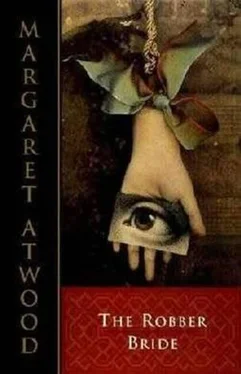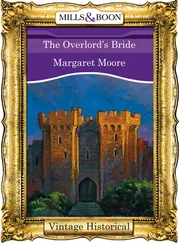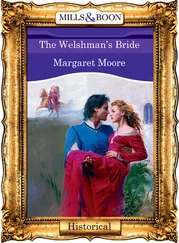The truth is that she doesn’t much like the Toxique. It’s partly the name: she considers it damaging to the neurons to spend time around such a poisonous name. And the clothes on the waiters, the servers, remind her of some of the things they used to sell in Okkult. At any moment there could be rubber scars and fake blood. But she’s willing to eat here once in a while for the sake of Roz.
As for Tony, who knows what she thinks of this place? Tony’s hard for Charis to read; she always has been, ever since they first met, back in the McClung Hall days. But most likely Tony would have exactly the same attitude if it were the King Eddie, or else McDonald’s: a kind of goggle-eyed, incredulous note-taking, like a Martian on a time-travel holiday. Collecting specimens. Freeze-drying them. Sticking everything into labelled boxes. Leaving no space, no space for the unsayable.
Not that she doesn’t like Tony. No, wrong. There are quite a few times when she doesn’t like Tony. Tony can use too many words, can grate on her, can rub her electrical field the wrong way. But she loves Tony all the same. Tony is so calm, so clearheaded, so grounded. If Charis ever hears any more voices telling her to slit her wrists, Tony is the one she’d call, to come over on the Island ferry and take charge of her, to defuse her, to tell her not to be an idiot. Tony would know what to do, step by step, one thing at a time, in order.
She wouldn’t call Roz at first, because Roz would freak out, would cry and sympathize and agree with her about the unbearability of it all, and would be late for the ferry as well.
But afterwards, after she felt safe again, she would go to Roz for the hug.
Roz and Tony come in together, and Charis waves at them, and there’s the flurry there always is when Roz enters a restaurant, and the two of them sit down and Roz lights a cigarette, and they start talking at once. Charis tunes out because she isn’t that interested in what they’re saying, and just lets their presences wash over her. Their presences are more important to her anyway than what comes out of their mouths. Words are so often like window curtains,* a decorative screen put up to keep the neighbours at a distance. But auras don’t lie. Charis herself doesn’t see auras as often as she used to. When she was little. when she was Karen, she saw them effortlessly; now it’s only at moments of stress. But she can sense them, the way blind people can sense colour through the ends of their fingers.
What she senses about Tony today is coolness. A transparent coolness. Tony reminds her of a snowflake, so tiny and pale and fastidious, but cold; a mind like an ice cube, clear and square; or cut glass, hard and sharp. Or ice, because it can melt. In the school play, Tony would have been a snowflake: one of the smallest children, too little for a speaking part but taking it all in. Charis herself was usually cast as a tree or a shrub. She wasn’t given anything that involved moving around becauseshe would have bumped into things, or that’s what the teachers said. They didn’t realize that her clumsiness was not the ordinary kind, not poor coordination. It was just because she wasn’t sure where the edges of her body ended and the rest of the world began.
What would Roz have been? Charis visualizes Roz’s aura—so golden and many-coloured and spicy—and her air of command, but also that undercurrent of exile, and casts her in the role of one of the Three Kings, wearing brocade and jewels, carrying a splendid gift. But would Roz ever have been in such a play? Her early life is such a jumble, with all those nuns and rabbis in it. Maybe she wouldn’t have been allowed. Charis herself gave up Christianity a long time ago. For one thing, the Bible is full of meat: animals being sacrificed, lambs, bullocks, doves. Cain was right to offer up the vegetables, God was wrong to refuse them. And there’s too much blood: people in the Bible are always having their blood spilled, blood on their hands, their blood licked up by dogs. There are too many slaughters, too much suffering, too many tears.
She used to think some of the Eastern religions would be more serene; she was a Buddhist for a while, before she discovered how many Hells they had. Most religions are so intent on punishment.
She realizes that she’s halfway through her lunch without having noticed. She’s having the grated carrot and cottage cheese salad, a wise choice; not that she can remember having ordered it, but sometimes it’s useful to have an automatic pilot like that, to take care of the routines. For a moment she watches Roz eat a piece of French bread; she likes to watch Roz eat French bread, cracking it open, burying her nose in it—This is so good, Oeis is so good!—before sinking her firm white teeth into it. It’s like a small prayer, a miniature grace, what Roz does with bread.
“Tony,” says Charis, “I could really make something good, with your back garden.” Tony has a great space back there, but there’s nothing in it except patchy lawn and some diseased trees. What Charis has in mind would be fixing up the trees, and making a sort of woodland, with jack-in-the-pulpits, violets, mayapples, Solomon’s seal, things that grow in shade. Some ferns. Nothing that Tony would have to weed, she could never be depended on for that. It would be special! Perhaps a fountain? But Tony doesn’t answer her, and after a moment Charis realizes it’s because she hasn’t spoken out loud. Sometimes it’s hard for her to remember whether she’s actually said a thing or not. Augusta has complained about this habit of hers, among others.
She tunes back in to the conversation: they’re talking about some war. Charis wishes they wouldn’t get going on war, but they often do these days. It seems to be in the air, after a long time of not being there much at all. Roz starts it; she asks Tony questions, because she likes to ask people questions about things they’re supposed to know about.
One of their lunches a few months ago was all about genocide, and Roz wanted to talk about the Holocaust, and Tony launched into a detailed thing about genocides through the ages, Genghis Khan and then the Cathars in France, and then the Armenians being butchered by the Turks, and then the Irish and the Scots and what the English did to them, death after horrible death, until Charis thought she was going to throw up.
Tony can deal with all of that, she can handle it, maybe to her it’s just words, but for Charis the words are pictures and then screams and moans, and then the smell of rotting meat, and of burning, of burning flesh, and then physical pain, and if you dwell on it you make it happen, and she can never explain this to Tony in a way that Tony will understand, and also she’s afraid they’ll decide she’s being silly. Hysterical, a nitwit, a flake. She knows they both think that sometimes.
So she’d got up and gone down the dark splintery stairs to the washroom, where there was a Renoir poster on the wall, a rounded pink woman drying herself leisurely after the bath, with blue and mauve highlights on her body, and that was peaceful; but when she’d gone back upstairs Tony was still in Scotland, with the Highland women and children being hunted down in the hills and spitted like pigs and shot like deer.
“The Scots!” said Roz, who wanted to get back to the Holocaust. “They’ve done very well for themselves, look at all those bankers! Who cares about them?”
“I do,” said Charis, surprising herself as much as she did the two of them. “I care:” They looked at her in amazement, because they were used to her taking mental time off when they talked about war. They thought it didn’t interest her.
“You do?” said Roz. her eyebrows up. “Why, Charis?”
“You should care about everybody,” said Charis. “Or maybe it’s because I’m part Scottish. Part Scottish, part English. All those people who used to kill one another so much.” She leaves out the Mennonites because she doesn’t want to upset Roz, although the Mennonites don’t count as real Germans. Also they never kill people; they only get killed, instead.
Читать дальше












